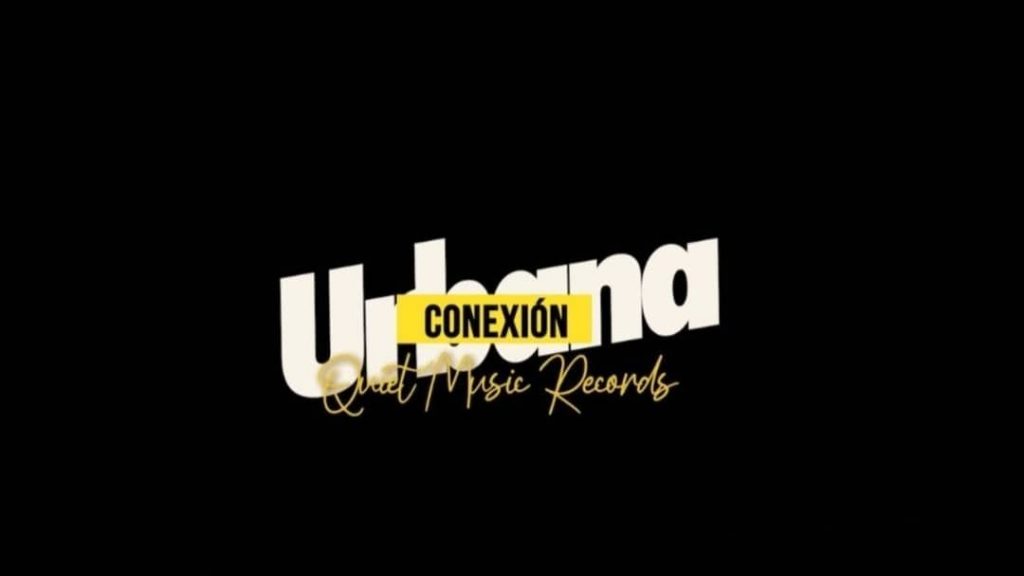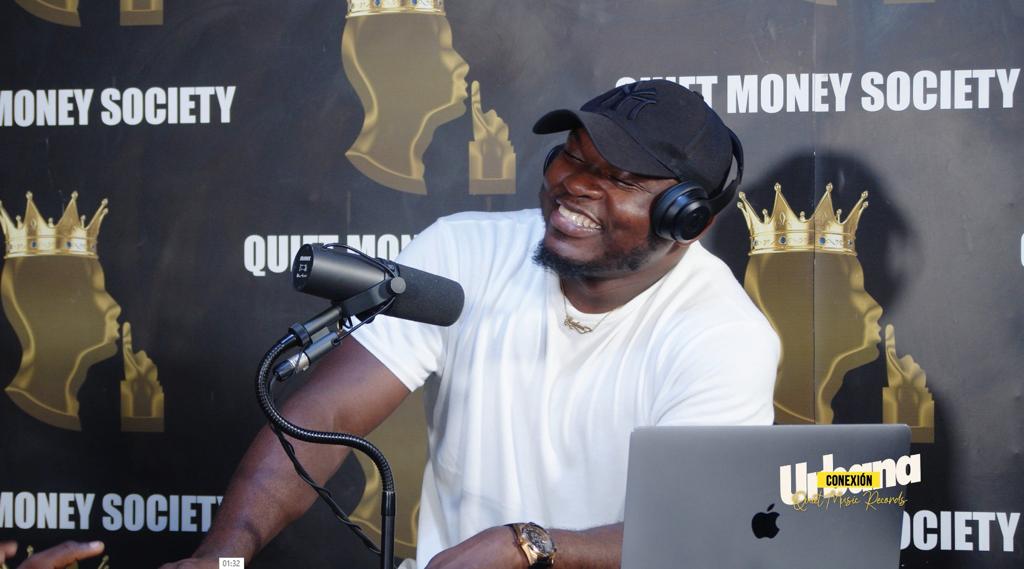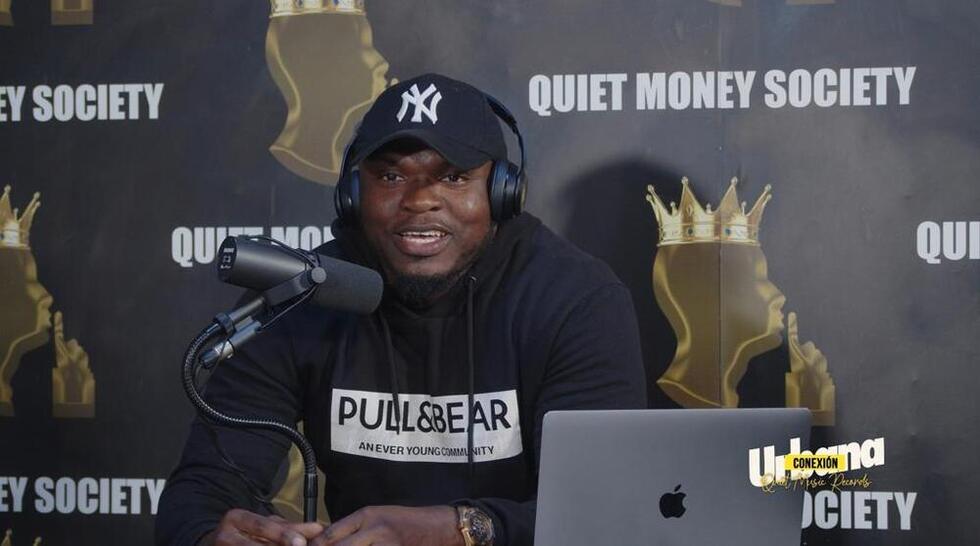WHCY PR MAG sits down with Rubén Molongua to discuss Music and Talent in Equatorial Guinea, the podcast he hosts, Conexión Urbana — a music discovery Youtube channel shining light on Equatorial Guinea’s urban talent —, and crossing borders through Culture.
WHCY PR MAG is a series shining light on emerging artists and up-and-coming talent across the world, pushing boundaries and shaping culture with their art. Youth subcultures, rebellious thinking and community-led movements are the force behind any country’s thriving creative scene and political change.
WHCY PR MAG speaks with DJ, Host and Music Curator Rubén Molongua. Born and raised in Equatorial Guinea in the 1990s, Rubén developed an early passion for football (soccer) at a young age. As he grew older, he also became interested in Music and Computer Science.
Rubén’s three passions are ever-present in his life today: he works in IT and teaches Computer Science; he still loves soccer, he follows the sport religiously, and his love for “good music” led him to become a club DJ.
Having lived in China for seven years, Rubén Molongua’s appreciation for music and culture eventually guided him to hosting Conexión Urbana, a podcast and music discovery Youtube channel shedding light on Equatorial Guinea’s urban talent and its burgeoning music scene. Conexión Urbana operates under the umbrella of QUIET MUSIC RECORDS, an Equatoguinean label based in the capital Malabo.

Image courtesy of Rubén Molongua
Equatorial Guinea, one of the smallest countries by territory and population in Africa, is located on the west coast of the continent, bordered by Cameroon and Gabon. It consists of a mainland region, Río Muni, and an insular region made up of five islands, including Bioko, where the capital Malabo is located. The country, which is the only Spanish-speaking nation in Africa, achieved its independence from Spain in 1968.
Little is known about Equatorial Guinea outside of its borders. At present, the country is the 9th largest oil producer in Africa and the 37th in the world; however, poverty is pervasive and widespread, with 70 percent of the population still living in impoverishment. President Teodoro Obiang Nguema Mbasogo, a former military officer, has ruled the country since deposing the former President in a violent coup in 1979. In a country, ruled by systemic autocracy, that ranks as one of the lowest nations in the world for freedom, democracy and civil liberties, pathbreakers like Rubén Molongua are essential in bringing the beauty of Equatorial Guinea, its people and talents to the attention of the international public.
When and Where were you born?
I was born in Equatorial Guinea. On 17th September 1990.
Where are your parents from?
My parents are from Equatorial Guinea.
What was it like growing up in Equatorial Guinea?
Growing up in my country Equatorial Guinea has been an enriching experience, where I have had the opportunity to immerse myself in our vibrant and diverse culture. This has contributed to shaping the person I am today.
You mentioned that your passions are Information Systems, IT, soccer and music. Which one manifested first?
The question is a bit complex…But I’d say that soccer manifested first, as I was growing up, music and IT came after.
Would you say Soccer and IT are still present in your life?
Soccer and IT are still a very important part of my life.
I work as a Computer Technician, and I am an IT Teacher. And I still have the same passion for soccer. I’m a loyal follower of the sport.
How did you get into music?
I’ve been into music for as long as I can remember. I’ve always loved music.
You are a DJ, you go by the name “DJP Official”. What drew you to becoming a DJ?
I love “good music”. I know I have a great taste in music, whether it is Hip Hop, Pop, Latin, Dance…almost in any genre. That’s what led me to become a DJ.
How did Conexión Urbana come about? What is its purpose?
Conexión Urbana was born out of a joint vision shared by a group of young people who love music; it’s a long-term project. Conexión Urbana has a few goals:
- To give visibility to young emerging talents so that they can be seen in the music scene.
- To promote the best artists that participate in Conexión Urbana.
- To introduce music from Equatorial Guinea in other countries, in other words, to cross borders.
- Doing things different to the rest, with more professionalism and commitment.
Tell us more about the process that you follow for each episode of Conexión Urbana. Is it difficult to find artists for the show?
The process is the following: we have an email address where artists who want to have a session with us send their music to. We listen to each artist’s music and decide who can come to the show and who doesn’t meet the criteria.
Finding artists for the show isn’t difficult; finding artists that meet the criteria to be invited to the show is slightly more complicated.
Why is it important to you to give visibility to artistic talent in Equatorial Guinea?
Because we want to change things, we want Equatorial Guinean artists to be able to live off their talent. We want to grow the music scene of this country, and that our music crosses borders.
Conexión Urbana is an extension of QUIET MUSIC RECORDS? What does the label do?
Conexión Urbana belongs to the music label QUIET MUSIC RECORDS. The label focuses on promoting talent and diversifying our catalogue with high-quality, ground-breaking music.
How many people work in your team?
I want to clarify something very important: I am the host of Conexión Urbana, a show that belongs to QUIET MUSIC RECORDS. What I am trying to say is that I am just the image of this project, there’s many other people behind the cameras.
But I can say that we are 5 team members.
Is there meaning behind QUIET MUSIC RECORDS?
Yes, there is, but we prefer not to talk about it just yet. We will, in the future.
What is your declaration of intent?
Our declaration of intent is to become a trusted resource that helps, empowers and promotes its artists.

Image Courtesy of Rubén Molongua
Is reaching a Spanish audience one of your goals?
Yes, it would be. Reaching Spain and any other Spanish-speaking country.
Have you ever lived in any other country outside of Equatorial Guinea?
Yes, I studied my degree in China. I lived there for approximately 7 years.
As a DJ and host, what are the main challenges you face?
Fierce competition in the music industry, oversaturated markets — where it is difficult to stand out —, financial pressures and the need to constantly innovate to stay relevant to an ever-changing audience are some of our main challenges.
Is it difficult to promote art and culture in Equatorial Guinea?
Yes, it is a challenge due to the lack of resources and institutional support.
Do you think that the world of music and culture are becoming more democratic and inclusive thanks to the Internet and Social Media?
Yes, I do. The Internet and Social Media allow emerging artists to promote themselves, connect with global audiences and receive direct feedback. Platforms like Soundcloud, Youtube and Instagram have leveled the playing field, bringing opportunities to diverse and non-conventional talents, which otherwise, would be overlooked by the traditional music industry.
Would you say “economic capital” is necessary when promoting culture in Equatorial Guinea?
Economic capital is critical to promote culture in this country, in order to finance cultural activities, infrastructure and artistic programmes that will contribute to the cultural development of Equatorial Guinea.
Do you have any sources of inspiration?
Well, it is a difficult question to answer for me…I do not have a specific source of inspiration.
Sometimes, I listen to the work of other DJs and I get inspired by them, directly or indirectly.
What episode of Conexión Urbana have you loved producing so far? Why?
To be honest, I have loved every episode we have done so far. But if I had to pick one, I’d choose the first episode. Because it was the beginning of it all; the episode is called “ORIGEN”. We weren’t sure of how the Equatoguinean audience was going to receive it, it is a very difficult audience to sway. It is worth noting, that in the first episode, we had a collaboration from two big artists in the rap scene in our country; they had never collaborated in a song before. These two artists, who have marked an era in Equatorial Guinea’s Rap Scene, had never worked together before and at Conexión Urbana, we made it possible.
The song was very well received by the audience.
What is next for Rubén Molongua?
I’m focused on continuing to learn and improving my skills to release better content in Conexión Urbana.

